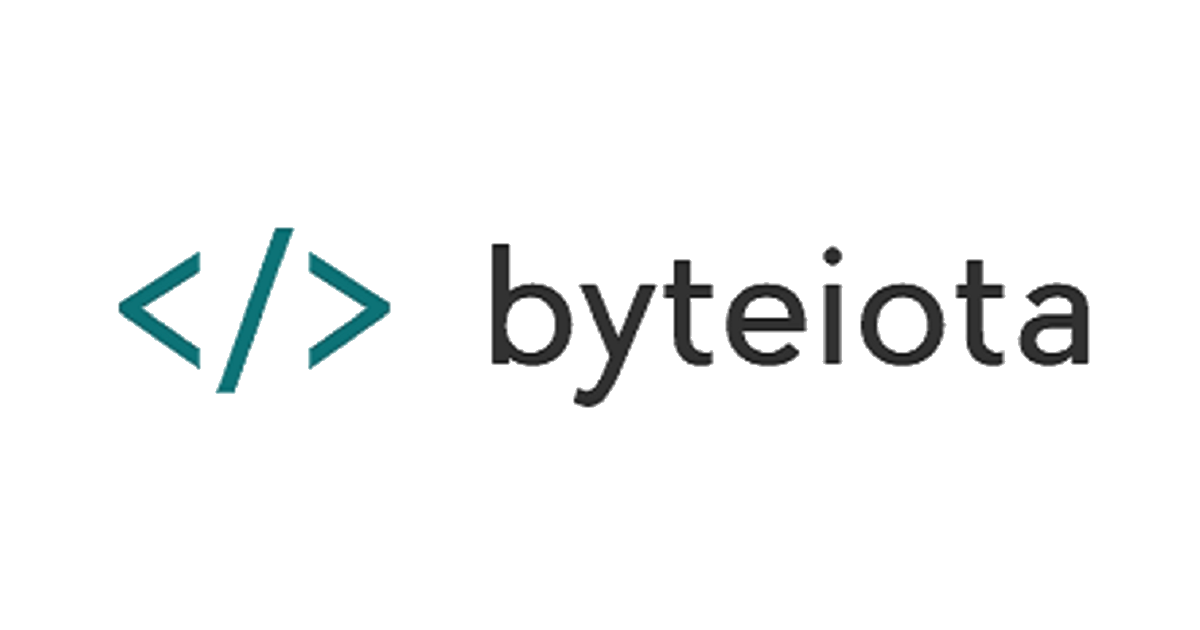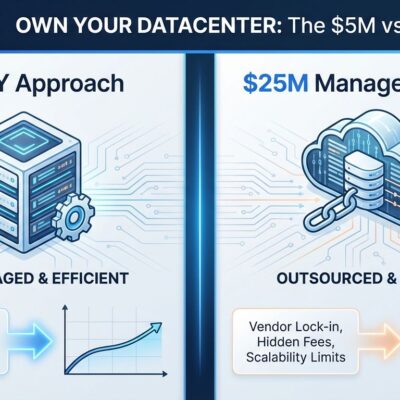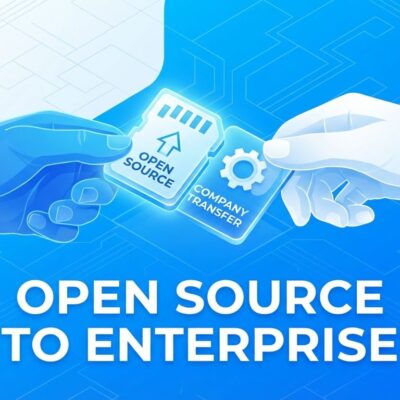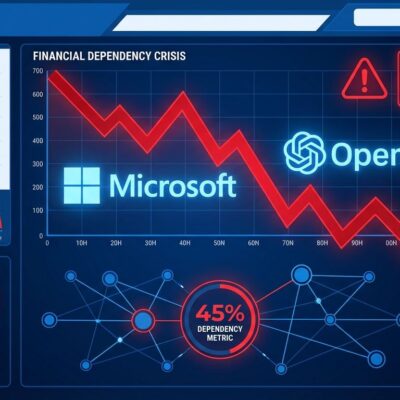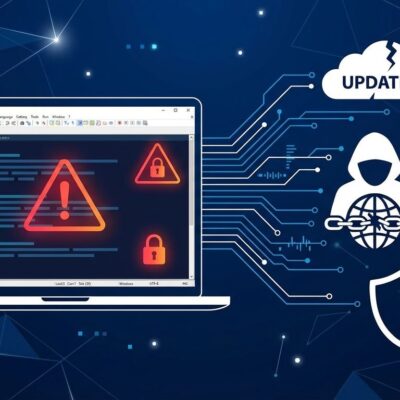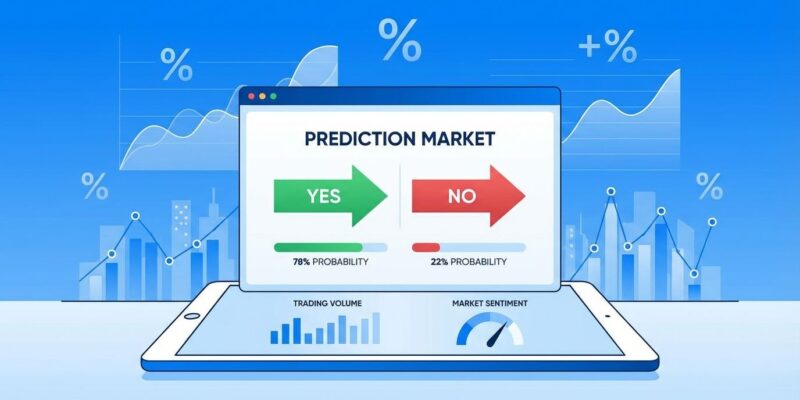
Kalshi raised $1 billion at $11 billion valuation on November 20, 2025—one of the largest FinTech rounds this year and a 120% jump from its $5 billion valuation just weeks earlier in October. Led by Sequoia Capital and CapitalG, with backing from Andreessen Horowitz, Paradigm, Anthos Capital, and Neo, the CFTC-regulated prediction market platform hit $50 billion in annualized trading volume by mid-October, representing 1,000x growth from $300 million the prior year. Eighteen months ago, prediction markets were “too weird” for Wall Street. Today, they’re $11 billion FinTech unicorns backed by top-tier VCs.
Prediction Markets Beat Traditional Polls in 2024 Election
The massive investment followed Kalshi and rival Polymarket correctly predicting Donald Trump’s 2024 presidential victory while traditional polls showed a toss-up. On election morning, Kalshi priced Trump at 57 cents versus Harris at 42 cents; Polymarket showed 62 cents to 38 cents. Both were right. Polls across the board showed 48-50% ranges—effectively coin flips that missed the outcome.
A Wake Forest University economics professor concluded: “The markets were far and away the best forecast of the 2024 election.” Academic research published in 2025 confirms prediction markets outperformed FiveThirtyEight forecasts in 2018, 2020, and 2024 elections. The difference? Markets ask “who will win?” with economic skin in the game. Polls ask “who do you want to win?” without consequences. That accuracy gap is why Sequoia and CapitalG doubled down with a billion-dollar bet.
Federal Approval Doesn’t Stop State Enforcement
Despite CFTC approval as a Designated Contract Market—the same regulatory status as the Chicago Mercantile Exchange—Kalshi faces legal battles with 36 state attorney generals who claim it violates gambling laws. The Arizona Department of Gaming stated bluntly: “There is no meaningful difference between buying a sports outcome contract on Kalshi and placing a bet with a sportsbook.” Sixty-five tribal gaming entities filed amicus briefs arguing Kalshi violates their exclusive gambling rights and diverts revenue from tribal casinos.
Kalshi has received cease-and-desist letters from Illinois, Maryland, Montana, and Ohio, with active lawsuits from Nevada, Massachusetts, and New Jersey. Federal approval means nothing if states can shut you down. Polymarket’s CEO predicts “the Supreme Court will likely decide” the jurisdiction question, suggesting a SCOTUS case within 12-24 months. For developers building on Kalshi’s API, this regulatory uncertainty is a platform risk.
API Ecosystem Attracts Bot Developers
Kalshi provides REST API and WebSocket access for real-time trading, spawning an ecosystem of automated trading bots. GitHub repositories show Python bots using AI models from OpenAI and Octagon Deep Research for market analysis, Rust high-performance wrappers for low-latency trading, and market-making strategies using WebSocket subscriptions. The platform allows up to $25,000 per contract—significantly higher than competitor PredictIt’s $850 limit—making it viable for serious algorithmic traders.
For developers, prediction markets represent a new financial primitive to build on. Unlike traditional exchanges with high barriers to entry, Kalshi offers accessible API access for individual developers experimenting with automated event trading. It’s an alternative to stock or crypto trading with a unique feature: events have binary outcomes and settlement deadlines, making them more predictable than price movements.
The Gambling vs Trading Question
The semantic debate over “gambling” versus “trading” has real consequences. If courts classify Kalshi as gambling, federal CFTC approval won’t save it, the $11 billion valuation collapses, and developers lose API access. If classified as a financial exchange, prediction markets become a permanent fixture.
Kalshi argues it’s a regulated financial exchange offering risk management and information discovery under CFTC authority. Critics say it’s gambling with a tech veneer. Columbia Law School’s analysis notes prediction markets “inhabit a murky space between regulated financial instruments and traditional gambling.” The distinction matters because financial exchanges fall under federal jurisdiction (exempt from state gambling laws), while sportsbooks face state-by-state regulation and taxation.
Key Takeaways
- Prediction markets validated by 2024 election accuracy, attracting $1B institutional funding from Sequoia and CapitalG—the election performance proved forecasting value beyond crypto speculation, driving mainstream investor confidence in a previously niche market.
- Federal CFTC approval doesn’t prevent state enforcement—36 states fighting Kalshi despite regulatory designation, SCOTUS case likely within 12-24 months. Federal vs state jurisdiction conflict creates unprecedented regulatory uncertainty for developers and users.
- Developer opportunities in growing API ecosystem for automated trading bots, with GitHub projects showing Python AI integrations, Rust wrappers, and market-making strategies. Kalshi’s $25K contract limits enable serious algorithmic trading unavailable on smaller platforms.
- “Gambling vs trading” classification will determine if prediction markets survive or collapse—semantic debate has billion-dollar consequences. If courts rule it’s gambling, federal approval means nothing; if ruled financial exchange, it’s here to stay.
- Kalshi’s 1,000x growth ($300M to $50B volume) signals mainstream adoption, but regulatory risk remains high. Platform operates in 140+ countries with top-tier VC backing, yet faces cease-and-desist orders from multiple states. Institutional money believes in long-term viability despite legal battles.
